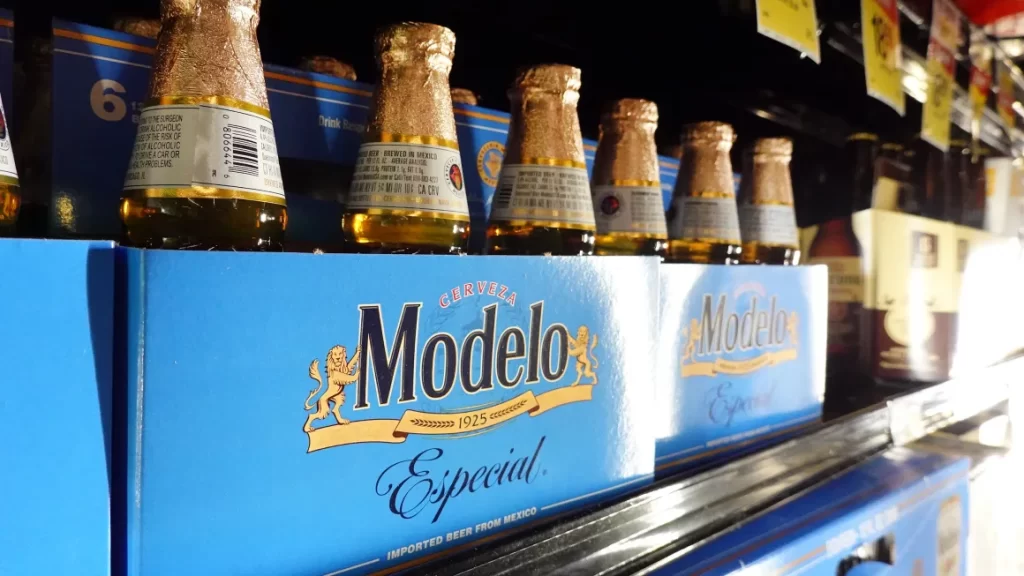Beer and liquor might be considered recession-proof, but they are certainly not immune to the impact of tariffs. If President-elect Donald Trump proceeds with his plan to impose a 25% tariff on goods from Canada and Mexico, American consumers may face higher prices for some of their favorite beverages, including the nation’s top beer brand, Modelo.
In preparation for potential price hikes, some businesses have already begun stockpiling popular products, particularly tequila, which can only be produced in Mexico. Despite these precautions, industry experts warn that consumers will ultimately bear the brunt of the increased costs.
“Many companies, particularly smaller ones, have little choice but to pass on these costs to consumers,” said Dave Williams, president of Bump Williams Consulting, which specializes in the alcoholic beverage industry.
The same is expected for large companies as well. Constellation Brands, which imports popular Mexican beers such as Modelo and Corona, as well as Casa Noble tequila, could see costs rise by 16% under Trump’s proposed tariffs. This increase would likely result in a 4.5% price hike for consumers, according to Wells Fargo equity analyst Chris Carey.
Although these tariffs are still in the proposal stage with numerous uncertainties, a tariff on products from two of the United States’ largest trading partners would strike a blow to an industry that is still recovering from trade wars, the pandemic, supply chain issues, and inflation.
“Tariffs are a negotiation tool, and while the hope is for a resolution that benefits everyone, businesses must prepare for the worst-case scenario,” Williams said.
Preparing for the Worst: A Tequila Collection
In Metuchen, New Jersey, Meximodo, a popular tequila bar and Mexican restaurant, is already taking steps to protect itself from the potential price hikes. Known for holding the Guinness World Records title for the largest collection of agave spirits, Meximodo’s stockpile of over 1,000 bottles could be significantly impacted by a 25% tariff.
To mitigate the impact, the restaurant’s parent company, Le Malt Hospitality Group, has implemented technological solutions to streamline inventory, operations, and sourcing. However, to further shield themselves, they have also decided to increase orders. Meximodo’s upcoming launch of its Organic Blanco Tequila brand has prompted the company to triple its initial order, preparing for potential price hikes that could hit when products reach the U.S. ports.
“We don’t know if the tariffs are coming, but we’re making sure we’re ready,” said Le Malt CEO Saurabh Abrol.
The Growing Impact of Imports
In recent years, Mexico has become the largest exporter to the U.S., surpassing China. While products like cars and oil dominate exports, beer and alcohol have quickly become major contributors to the trade between the two countries. In 2023 alone, the U.S. imported $5.69 billion worth of beer and $4.81 billion in alcohol from Mexico, marking a 126% increase from 2017.
With Canada also being a significant source of alcohol, importing $543 billion in alcoholic beverages, including whiskey, the potential tariffs could affect a wide range of popular spirits. The Distilled Spirits Council warns that retaliatory tariffs from other countries are likely, as seen in 2018 when the European Union imposed a 25% tariff on American whiskey in response to U.S. tariffs on steel and aluminum. This led to a 20% decline in whiskey exports to the EU.
Impact on U.S. Brewers and Distillers
Even though some U.S. products are exempt from these tariffs, the increased costs of materials like Canadian malted barley and aluminum could still have a significant impact on U.S. beer and spirits businesses, especially smaller operations. Katie Marisic, Senior Director of Federal Affairs at the Brewers Association, points out that while craft beer is an American-made product, it still depends on imports for key ingredients.
In 2018, tariffs on steel and aluminum caused price increases for essential materials used in brewing, such as aluminum cans. “While breweries are innovative, adapting to these changes is not without challenges,” Marisic said.



